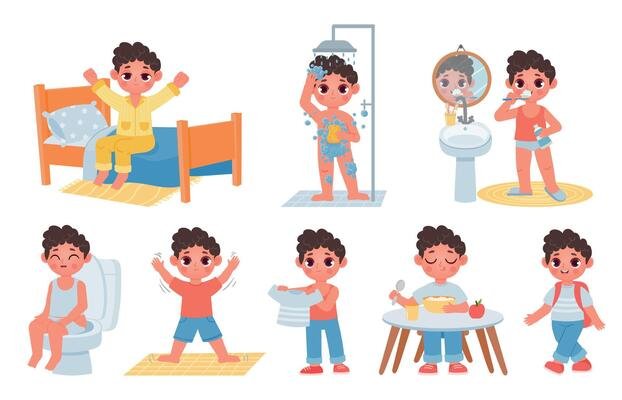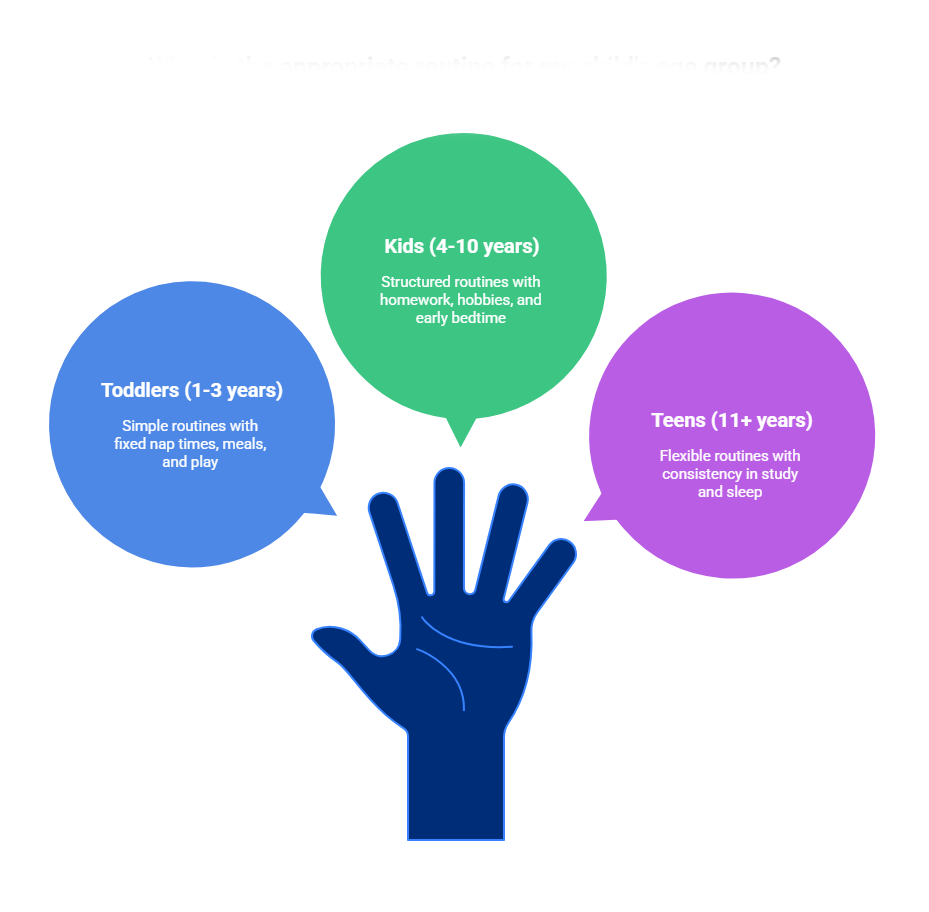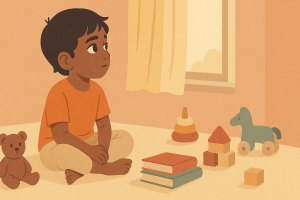As parents, we all want the best for our kids, right? We want them to be happy, healthy, and successful in school and life. But here’s a little secret – raising disciplined, confident children doesn’t always come from expensive classes or endless activities. Sometimes, it’s the simple things that make the biggest difference.
Why Routines Are Crucial for Child Development in India
Building a Strong Foundation Early On
Think about it – when your child knows what to expect, life feels less chaotic. Morning routines, mealtime schedules, or even a regular bedtime.. they all teach kids discipline without you having to nag all the time. And honestly, with our busy Indian households, a little predictability is a lifesaver for both parents and kids.
Emotional Security Through Predictability
Kids feel safe when life is predictable. Imagine your child knowing, ‘Okay, after school, I play for an hour, then I do homework.’ It takes away stress, reduces tantrums, and helps them feel cared for. Something as simple as a nightly bedtime story can make them look forward to winding down each day.
Physical Health Benefits of Routines
Let’s be real – kids today spend way too much time on screens, and irregular sleep or meal times are becoming the norm. A routine helps bring balance back. Regular sleep = better immunity and growth. Scheduled meals = healthier eating habits. A good mix of study and playtime = fewer fights about screen time.

Academic and Cognitive Growth
Enhancing Focus and Concentration
Ever noticed how kids struggle to sit down and study if the timing is random? But when there’s a fixed ‘study hour,’ they adjust. Routines train their brains to focus better, which means less stress for you during exams and more confidence for them in school.
Better Sleep and Brain Development
Here’s the thing: a child’s brain develops while they sleep. When bedtime is all over the place, it messes with memory and learning. A simple, consistent bedtime routine – dinner, a little chat, a bedtime story, lights out – works wonders for their focus and learning ability.
Parenting Tips for Creating Effective Routines
Age-Appropriate Routines
- Toddlers (1–3 years): Keep it simple – fixed nap times, meals, and play.
- Kids (4–10 years): Add homework time, hobbies, and early bedtime.
- Teens (11+ years): Give them flexibility but encourage consistency – especially with study and sleep.

Common Mistakes to Avoid
- Over-scheduling: Don’t pack every hour with tasks; allow free play.
- Screen-time dependency: Avoid letting mobile phones or TVs dictate routines.
- Rigid enforcement: Routines should be flexible enough to adapt during festivals, holidays, and emergencies.
Real-Life Stories from Parents
Many parents have already seen the magic of routines. A mom in Bangalore told us how her 8-year-old’s attention improved just by setting a fixed ‘study hour’ every evening. Another family in Delhi noticed their kids slept better once they stopped late-night TV and switched to bedtime storytelling.
It’s not about perfection – it’s about consistency.
Conclusion
Routines might sound boring, but they’re honestly one of the best gifts you can give your child. They create structure, security, and habits that last a lifetime.
So, if you’re an Indian parent wondering where to start, here’s the answer: Start small. Fix bedtime. Add a regular mealtime. Slowly, everything will fall into place.
👉 Trust me, these little steps today will shape a happier, healthier, and more focused future for your child.
Disclaimer: This blog is correct as per the writer’s knowledge. This is not medical guidance. Follow as you are responsible for.







